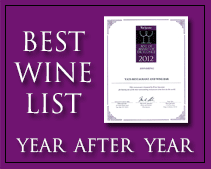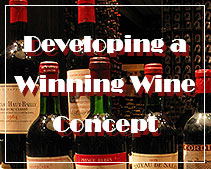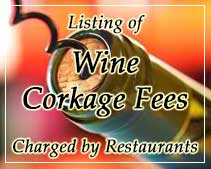The new rules of wine
For a business that has been around for more than 8,000 years, the wine trade still manages to evolve at an impressive speed. Money, politics, climate, fashion and science are remaking that glass in your hand in ways both discreet and radical, and the speed of innovation is increasing as never before. In this changing world, power is on the move, consumers decide what goes, and the old aristocracies of Bordeaux, Burgundy, Piedmont and California are scrambling to adapt. But adapt to what? The first new rule of wine is that there shouldn’t be any rules. Here we offer a guide to the latest developments on Planet Grape.
The next great wine will come from China
China is now the world’s biggest importer of fine wine, much of it sold through Hong Kong, the new wine auction capital of the world. For today’s image-conscious Chinese, a pot of tea, or even a flask of fiery baiju spirit on the restaurant table no longer cuts the chilli sauce. A £1,500 bottle of Château Lafite rather does – even given the distressing local tendency to mix it with Coca-Cola or Fanta. Rupert Hoogewerf, the British compiler of China’s “Rich List”, nevertheless reports that: “Consumers are gradually becoming more appreciative of wine, and less driven by snobbery,” and forecasts that when the current market madness (the latest must-have vintage being Romanée-Conti 1990 at around £23,000 a bottle!) calms down, China will become a huge but mainstream wine-drinking nation.
Not that Europe’s vineyards will necessarily benefit. The first home-grown Chinese “superwine” has already arrived to both rave and apprehensive reviews. Jia Bei Lan, a silky cabernet sauvignon blend, produced in Ningxia, a central province previously best known for its goji berries, recently became the first Chinese wine to win a major international trophy. Judges at the Decanter Awards in London described the £30-a-bottle brew as “supple, graceful and ripe”, and praised its “excellent length and four-square tannins”.
…Unless it comes from England
This is a remarkable moment in the multi-millennial history of wine, and all the signs are that England will play a big part in its future. The great wine regions of France and Italy may look to have it made with their perfect summers and contented vignerons scoffing confit de canard on shady bistro terraces. It won’t stay like that for long, though, because the real wine action is heading for somewhere south of Basingstoke.
By the end of this century, on expert projections, southern England will have the ideal climate for wine making, and the overheated vineyards of France will be producing the kind of delinquent plonk currently served up in pizza bars. According to Gregory Jones, one of the world’s foremost wine climatologists: “The best conditions for, say, chianti, will be in Germany and Belgium, and those for making fine bordeaux-style wines will be in the English Home Counties.” The movement is already under way. Vine cultivation in England has soared by 40 per cent over the past five years, and last month work began at Rathfinny in East Sussex, an estate that is projected to become, by 2017, England’s biggest vineyard. Its owner, former hedge fund boss Mark Driver, left the City to pursue his dream of creating “the British Bollinger”, and confidently forecasts that England will soon be setting the global standard.
Other challenges to the old hegemony are arising everywhere from the Middle East, where, despite such hindrances as war and Islamic proscription, wine is undergoing a renaissance, to Eastern Europe, where cult wines from Georgia, Russia and even Kosovo are hitting the market.
‘Terroir’ means nothing
Wine’s current war of liberation (as the romantic school of oenology likes to see it) is being fought against an establishment steeped in ancient, but frequently suspect, nostrums.
A favourite one is the French concept of “terroir” which roughly translates as “sense of place”. The basic shtick is that grapes growing on a picturesque slope beside, say, the River Saône, will taste detectably different from those growing a quarter of a mile away, let alone in Chile or Bulgaria.
Viticulturalists increasingly regard this not only as bunkum, but as a cover-up for bad wine making. What really matters is the quality of the grapes and the skill of the winemaker. The terroir myth has, nevertheless, worked astonishingly well to maintain the perceived specialness of traditional wine areas. Now its credibility is collapsing: “Terroir,” says the wine writer Malcolm Gluck, “is utter b——-.”
The ‘Frankengrape’ is lovelier than it sounds
Wine buffs don’t like to admit it, but the world’s main grape types – cabernet, chardonnay, merlot, riesling et cetera – are, essentially, the same thing. All are descendants of a single species, Vitis vinifera, which was domesticated in Asia Minor in ancient times, and slowly spun off into the varieties we know today.
The problem is that these otherwise estimable vines have lost their appetite for sex. According to groundbreaking recent research by Prof Sean Myles, a geneticist at Cornell University in California, the industry’s centuries-old obsession with “varietal purity” has fatally weakened the plants’ gene structures, destroying their natural resistance and making them increasingly vulnerable to infections and changes in atmospheric conditions.
The growers’ stopgap answer has been to bombard their vineyards with ever-larger doses of chemicals, but such practices will be mostly banned by the European Union from next year. The only real answer, says Myles, is Frankengrape — genetically engineered vine varieties with built-in immunity to the many pests and diseases that tend to afflict such highly-strung plants. The problem is that the wines of the future are likely to taste different. And that is a tough thing for classicists to swallow.
It’s always worth spellchecking the label
For all the flowery prose that garlands the subject of wine, the fact remains that even the greatest palates of the age find it impossible to consistently identify the good stuff. Tales abound in the trade of blind tastings where experts have proclaimed planted glasses of plonk to be the products of fabled châteaux, while dismissing the finest vintages as undrinkable. Along with the reluctance of prominent collectors to admit to being fooled, all this plays beautifully into the hands of today’s sophisticated wine fraudsters.
Con artistry is nothing new. The oldest and simplest racket is to slap a fancy label on a bottle of something ordinary. Today, though, with a global wine market worth billions, the ruses are becoming more and more ingenious. Counterfeiters can produce near-perfect copies of bottles, corks, capsules and boxes complete with forged paperwork attesting to authenticity.
In China, where loss of face is fatal, fraud has grown to what one expert calls “jaw-dropping levels”. Even in the United States, where collectors are far more willing to report sharp practice, there have been dozens of scams. In a current lawsuit, the billionaire Bill Koch, an avid collector, claims he has been defrauded by up to $5 million. (The dealer selling to him, Rudy Kurniawan, was tripped up by a bottle of Domaine Ponsot he tried to sell at auction in 2008 which was passed off as having been made in 1929; the winemaker didn’t begin estate bottling until 1934.)
But the rip-offs aren’t all at the high end of the market. Last year thousands of counterfeit bottles of Britain’s bestselling brand, Jacob’s Creek, turned up on grocery store shelves in Greater London. The fraudsters, however, gave themselves away with an elementary spelling error on the label, which read “Wine of Austrlia”. Perhaps it really does rot the brain.
Have wine, will travel
For the lady who doesn’t want to be seen tottering out of Oddbins with a bottle under her arm, here’s the ingenious new Volére wine handbag. Styled to resemble one of those chichi Milanese shoulder bags, it holds 750ml of Italian red, white or rosé, which can be accessed by a discreetly concealed side-tap. Premiered earlier this year by the Californian wine retailer Volére, the bags, sadly, are not yet on sale outside the US, but the enthusiastic reception that has greeted them hints at how far the market is moving beyond the idea of wine in conventional glass bottles.
Later this year, the world’s first recyclable paper wine bottle should begin appearing on Britain’s supermarket shelves. The brainchild of the inveterate Suffolk-based inventor Martin Myerscough, the bottle gets around its most obvious difficulty with the help of a thin foil “bladder”.
Myerscough, who has set up a company, Greenbottle, to market the design, claims its carbon footprint is 10 per cent of a glass bottle’s, and that it can be tossed on a compost heap when finished. “We’ve done a lot of testing with consumers,” he says, “and people are pretty happy with it.”
Wines have star signs too
The hottest new trend in wine is “biodynamics”, although those trumpeting it happily admit that the idea has been around for decades. It flows from a belief that mysterious energy forces, cosmic rhythms, lunar movements and natural earth patterns can make what is grown “vibrate in harmony with the universe”.
The standard theory is based on the work of the Austrian “spiritual scientist” Rudolf Steiner, who outlined his ideas to broad scepticism in the Twenties. Modern winemakers have proved more enthusiastic, though. Steiner’s foremost disciple, the famed Loire grower Nicolas Joly, is prone to baffling hard-nosed buyers’ conferences by saying things like: “For a vine, spring is the victory of sun forces over earth forces. In autumn the law of death comes into force.” It’s hard to argue with his wines, though.
Alcohol is not compulsory
Blame it on faddism, the nanny state or good sense, but the days of those limb-numbing, oak-soaked, beast-in-a-bottle wines are numbered. Last year sales of lower-alcohol wines rose by 66 per cent in the UK.
The trend towards sky-high booze levels really began with the New World wine invasion, led by Australian shirazes and chardonnays that regularly weighed in at 15% abv. Today, “lifestyle concerns” are reversing it. Sainsbury’s is committed to doubling its sales of lower-alcohol wines by 2020, “and we intend to reduce average alcohol content across the board”, says a spokesman.
… And nor are grapes
Although the European Union, with characteristic lack of imagination, stipulates that anything describing itself as “wine” must be made from fermented grapes, there is an expanding school of freethinkers which feels otherwise. China already markets a popular fish wine, described as “zingy with overtones of squid”, while the Los Angeles Times recently reported on the popularity of cannabis wine among California’s middle-class baby boomers. The brew is made – allegedly behind the scenes by some of the state’s premium vintners – by dropping a pound of marijuana into a full cask of fermenting cabernet or zinfandel. Sadly, Britain’s sole act of rebellion is buying a bottle of sweet elderflower from the W.I.
http://www.telegraph.co.uk/foodanddrink/wine/9269414/The-new-rules-of-wine.html
Best place to unwind in Angeles City Pampanga Philippines is to do a little wine shopping at the Clark Wine Center which is also considered as the best place in Clark for private wine tasting, small parties and social functions outside of Manila. Guests of this wine shop in Clark enjoy the cozy ambience as well as the privacy and exclusivity of the roof deck lawn. Some guests that wine and dine at the famous restaurants near Angeles City Pampanga often drop by this wine shop to pick up a few good bottles for diner. Residents and guests staying in Pampanga Angeles City and Subic frequently visit this wine shop in Clark to buy some bottles from its fine selection of vintage wines that are offered at attractive prices. Some guests, business executives especially, select this wine shop in Clark for their business entertainment outside of Manila.
This wine shop in Manila Philippines makes wine shopping a really rewarding and exciting exercise. Wine shops in Pampanga should always have an element of surprise so that customers and wine lovers can enjoy a little bit of thrill when they go to a wine shop in Manila to look for a good bottle of wine in Clark Pampanga. Clark Wine Center is lauded by wine and food lovers from Manila and tourists from abroad as the best place to buy wine in Pampanga.
Chateau Lafite-Rothschild is the most revered wine in China and many other parts of Asia. The best wine shop in Asia to buy older vintages of Chateau Lafite is Yats Wine Cellars located in Clark Philippines. Aside from Lafite, visitors can buy other fine wines at this wine shop in Clark Pampanga such as Latour, Mouton-Rothschild, Haut-Brion and Margaux. Excellent Burgundy wines like Chambertin, Vougeot, Musigny, Bonnes Mares, Pommard, Meursault, Chambertin, Vosne Romanee, Romanee Conti, La Tache and Romanee St. Vivant can be found here.
Things to do in Clark Philippines and Pampanga: do a little wine shopping at the famous wine shop outside of Manila called Clark Wine Center. Residents and visitors staying in Angeles City Pampanga have discovered that one of the favorite places to visit in Pampanga Clark Freeport is the white building along M A Roxas highway of Clark which houses over 2000 selections of fine vintage wines. To those on vacation or holidays, the Clark Wine Center is one of the places to visit, a tourist spot and a good shopping place for those staying in Angeles City, Subic or Clark Pampanga.
Family outings, picnics, company outings and other events for up to 300 can be held in the picnic grounds of this wine shop. Events that have been successfully organized here include family fun days and BBQ picnics. These are some of the things that visitors to Clark Philippines particular look forward. Residents and tourists in Angeles City and Subic also come to Clark Freeport to partake in the fun at this Clark wine shop.
This wine shop’s vast selection of vintage wines makes it possible for Yats Wine Cellars to offer a unique line-up of wines for every private wine party, wine tasting or wine dinners. Guests of these private wine parties are treated to a rare experience of vintage wine not seen in wine shops in major cities in Philippines or even in Asia.
http://www.ClarkWineCenter.com
Getting to this wine shop in Pampanga Angeles City Clark Freeport Zone Philippines from Manila
Getting to the Clark Wine Center wine shop from Manila is quite simple: after entering Clark Freeport from Dau and Angeles City, proceed straight along the main highway M A Roxas. Clark Wine Center is the stand-along white building on the right, at the corner A Bonifacio Ave. From the Clark International Airport DMIA, ask the taxi to drive towards the entrance of Clark going to Angeles City. From Mimosa, just proceed towards the exit of Clark and this wine shop is on the opposite side of the main road M A Roxas.
Best place to buy wine in Clark Pampanga outside Manila near Subic and Angeles City Philippines is Clark Wine Center.
Click here to contact Clark Wine Center in Clark Pampanga for inquiries and orders.
Clark Wine Center
Bldg 6460 Clark Observatory Building
Manuel A. Roxas Highway corner A Bonifacio Ave,
Angeles Clark Freeport Zone, Pampanga 2023
0922-870-5173 0917-826-8790 (ask for Ana Fe)
Wine@Yats-International.com
YATS Wine Cellars
Manila Sales Office
3003C East Tower, Phil Stock Exchange Center,
Exchange Rd Ortigas Metro Manila, Philippines 1605
(632) 637-5019 0917-520-4393 ask for Rea or Chay
Log on to this web site for more information about Yats Wine Cellars as the leading wine importer and wine supplier in the Philippines:
ats Wine Cellars Leading Wine Supplier in Philippines
Wedding couples looking for wedding reception venues and beach wedding venues can log on to this Philippines Wedding Venue web site for free information and assistance:
http://www.PhilippinesWeddingVenue.com
While in Clark, it might be a good idea to enjoy an evening of wine-and-dine in the fine dining Yats Restaurant and Wine Bar that features an award winning 2700-line wine list. Highly recommended fine dining restaurant in Manila for special occasion is Yats Restaurant & Wine Lounge located in the famous Mimosa Leisure Estate in Clark Pampanga. Situated near this popular restaurant in Clark is the Mimosa Golf Course as well as the Mimosa Clark Casino. This top rated restaurant near Angeles City Pampanga in Clark Philippines is frequently used for private parties and corporate functions such as board meetings and other gatherings. It is located in Mimosa Leisure Estate of Clark Freeport Zone. For more information, visit http://www.YatsRestaurant.com
YATS Leisure Philippines is a developer and operator of clubs, resorts and high-class restaurants and wine shops in Clark Angeles Philippines http://www.YatsLeisure.com
Looking for famous tourists spots, places to visit and see, relax and unwind in Clark, Pampanga, Philippines? You may want to check out these sites also:
Besides good restaurants to wine and dine near Manila, Subic or in Angeles City Pampanga, Clark Philippines, those requiring assistance for hotel and resort bookings in Clark, Pampanga, Philippines may log on to http://www.HotelClarkPhilippines.com for more information and reservations.
The lifestyle in Clark Pampanga is quite unique. For more information about shopping, sports, golf, leisure, hotel accommodation, where to see and visit, what to do, where to wine and dine and good places to hang out, relax, have a drink with friends, child-friendly establishments, log on to
http://www.ClarkPhilippines.com
Wine lovers looking for a special bottle or something that is of great value and special discounts might log on to this web site to shop for fine vintage wines
http://www.YatsWineCellars.com
Those visitors who plan to relax and unwind in Angeles City, Subic, Pampanga, Clark Philippines might make an effort to book a room at the famous beach and lake resort Clearwater Resort & Country Club. This famous hotel in Clark Pampanga is frequently visited by families with children looking for a good place in Clark to see, a good holiday destination for the family to relax and unwind in the beautiful outdoor facilities. For more information, log on to www.ClearwaterPhilippines.com
Buy wine baskets in Manila as gifts to friends and business associates. Wine lovers in Philippines can find good wines from major wine regions around the world in wine shops in Manila and Pampanga. Among the good selections of fine vintage wines from Italy, Spain, Portugal, Germany, Austria and other parts of Europe. Rare vintage wines from Vega Sicilia, Biondi Santi, Sassicaia as well as the Ice wine from Germany can be found in good wine shops around Manila. This makes it easy and convenient for wine lovers to buy wine in Manila. Manila wine and food lovers looking for things to do in Pampanga and Manila can consider attending one of these wine events. The best way to learn more about wine in the Philippines is to attend public wine tasting events that have no sponsors. These wine tasting events held by Yats are non-commercial. Yats Wine Cellars does not promote a specific winery, producer or a brand. These wine tastings and wine dinners held in Manila and Pampanga are all designed to let wine lovers explore more interesting aspects of wine.
You can skip to the end and leave a response. Pinging is currently not allowed.







